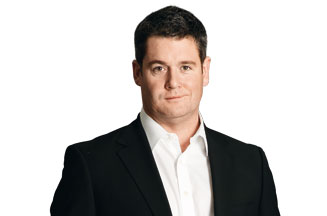The gorgeous late-autumn weather in Boston is coming to a close and winter is beginning to exert its influence over MIT's riverside campus. As the nights grow longer, my core class in marketing for the new first-year MBA students is also coming to a close.
With only a few weeks left to point 250 students in the right direction, my final few classes of the semester are designed to highlight what a great marketer could and should do. So here is my list, born from experience and forged from interactions with the minority of marketers I regard as proficient, and the majority who fall short.
Let's start with a basic but key criterion. They have to be comfortable spending time with and listening to consumers. A significant proportion of marketers cannot find the time or the humility to spend time in the market. They are happy briefing research agencies and reviewing the results, but miss the fundamental starting point for any great marketer: get out of your office and spend time in the places and spaces where your consumers experience the product, no matter how senior or 'important' you consider yourself.
Next, behavioural segmentation. Too many marketers think segments are people who have similar demographic characteristics. Rubbish. Segments are groups of consumers who want the same things - the fact that they might share an age range, gender or postcode is relevant only after we first use our market research to show specific clusters of shared needs. Segments built from survey data, with good behavioural names and a tight portrait to capture their identity, is a hallmark of a good marketer. The usual '18-35 male' crap indicates the opposite.
Then comes targeting. A good marketer has made the leap of faith and accepted that fewer target consumers will deliver a better overall result. Usually, that means stepping back from the segmentation and only going after 10% or 20% of the potential market. Tight target segments mean the marketing has a chance to succeed. Too many marketers lose faith at this stage and end up targeting pretty much everyone.
Which leads nicely to the next feature of a great marketer: being entirely comfortable devoting time and marketing money to excluding the wrong kinds of consumers from your brand. Most marketers, when asked, still don't know the difference between marketing and sales. Marketing is as much about stopping the wrong people buying a product as ensuring that the right ones do. Usually, the majority of potential consumers in any market will cost you money if you serve them. A good marketer knows this and uses his or her skills to ensure they are avoided.
Next: positioning. A great marketer can create perceptual maps and uses them to derive a clear, tight, three-word positioning for their brand. No wheels or triangles here, just a clear articulation of what the brand stands for. If ever there was a question that sorts the wheat from the chaff, it's: 'What is your positioning?' Too often this is met with a stream of generic crap about integrity and innovation or a ridiculously over-complex, six-slide presentation that attempts to capture the 'essence' of the brand. A good marketer answers with a confident smile and few words.
Lastly, brand tracking. Think about what you need in place to successfully conduct this. You have to have a clear positioning statement, know that ultimately brands exist in the consumer's consciousness, and commit 5%-10% of your marketing budget to research to collect this data on a continual basis.
How did you do?
Mark Ritson, PPA columnist of the year (business media), is an associate professor of marketing and consultant to some of the world's biggest brands
30 seconds on 'fathers' of marketing
- Edward Bernays (1891-1995), a nephew of Sigmund Freud, often cited as the originator of modern PR, was also behind many of the ideas that formed the foundation of marketing psychology. In his 1928 book Propaganda, he argued for the 'conscious and intelligent manipulation of the organised habits and opinions of the masses'.
- In his 1965 autobiography, Biography of an Idea: Memoirs of a Public Relations Counsel, Bernays recalled journalist Karl von Weigand telling him in 1933 about Goebbels and his propaganda plans to consolidate Nazi power, and how Goebbels 'was using my book Crystallizing Public Opinion as a basis for his destructive campaign against the Jews of Germany. This shocked me'.
- Charles Coolidge Parlin (1872-1942) is thought of as the father of marketing research. In 1911 he founded a commercial research division for the Curtis Publishing Company, which helped develop many of the research and presentation techniques still in use today.
- Dr Philip Kotler has been referred to as the 'father of modern marketing'. The 78-year-old academic wrote the textbook Marketing Management, among other key titles. He is also the SC Johnson & Son distinguished professor of international marketing at the Northwestern University Kellogg Graduate School of Management.


